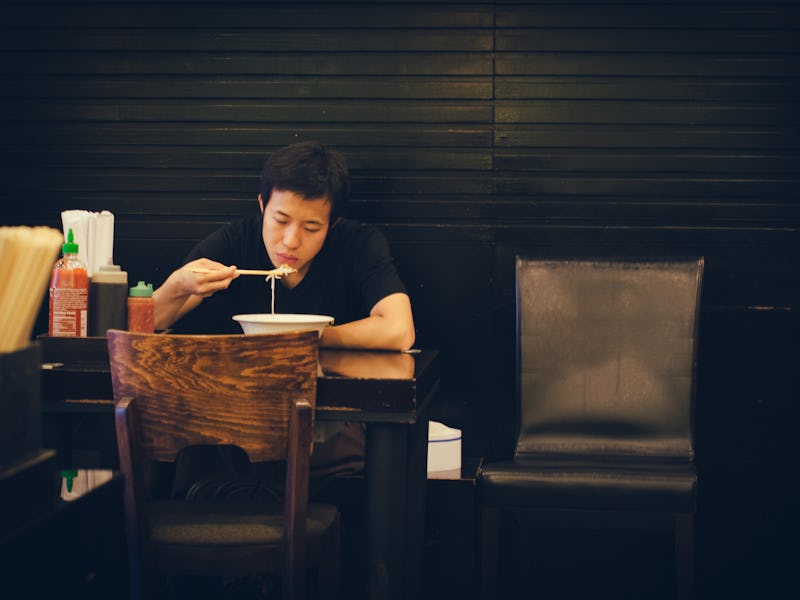Table for… one?
These three words used to be the bane of every solo diner’s existence, but a Japanese ramen chain wants to take them back, for foodies who believe the act of eating is best experienced without any human distractions. They make a very good point: If you want to fully savor your rich pork bone tonkotsu broth, science suggests you should ditch the idle chatter, and eat in the restaurant equivalent of a Stranger Things-style sensory deprivation tank.
At Ichiran, which just opened its 62nd global branch, diners are treated to a totally anti-social experience, utterly devoid of human interaction, which involves eating alone in a closed-off “flavor concentration booth.” The idea, as described on its site, is that these partitioned booths allow “privacy” and “full focus on your bowl of ramen.” In other words, it allows you to pay attention to the task at hand: tasting your food.
“People close their eyes and focus when they want to really concentrate on something,” the site’s website states. It reiterates the conclusions that many studies, on attention and sensory deprivation, have come to: Sensory distractions are capable of throwing off a person’s attention span. In 2011, a study in the journal Memory & Cognition explained that people close their eyes when trying to recall visual memories in order to specifically block out external visual stimuli that might be confusing. Likewise, a 2011 study in Psychonomic Bulletin & Review found that both auditory and visual distractions messed with a person’s ability to recall visual memories. The principle behind these studies is the same one behind the idea of eating in a booth where potentially distracting sounds, sights, and even smells — Ichiran only serves a single dish, so there are no competing scents — are kept to a minimum. (Ditto for Eleven’s dip into the sensory deprivation tank, to fully access her powers, in Stranger Things.)
There is, however, evidence showing that eating alone leads to less food intake, an effect that might backfire for Ichiran’s owners. A study in the journal Physiology & Behavior, published in 2006, showed that dining with friends made it harder for people to control how much they were ingesting, making them more likely to overeat. The scientists behind the study discovered one caveat, though: Eating with strangers didn’t seem to be as distracting.
All of this suggests that true foodies should prefer to eat alone but, when forced, would choose randoms as dining companions over their distracting friends — which makes a lot of sense. What self-respecting eater really wants to share their meal, anyway?
